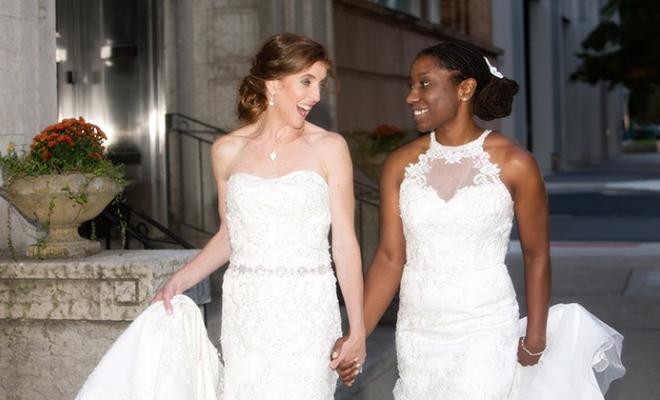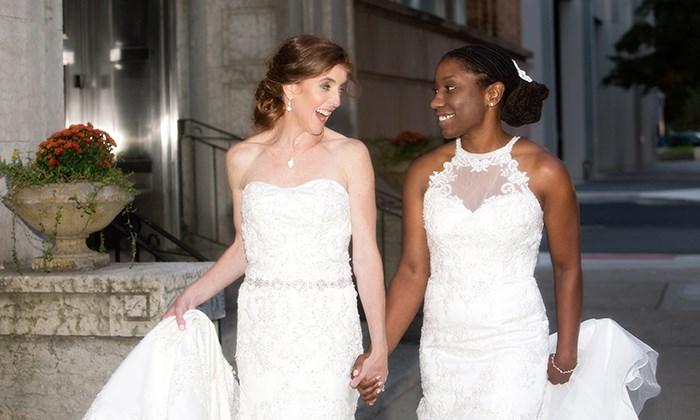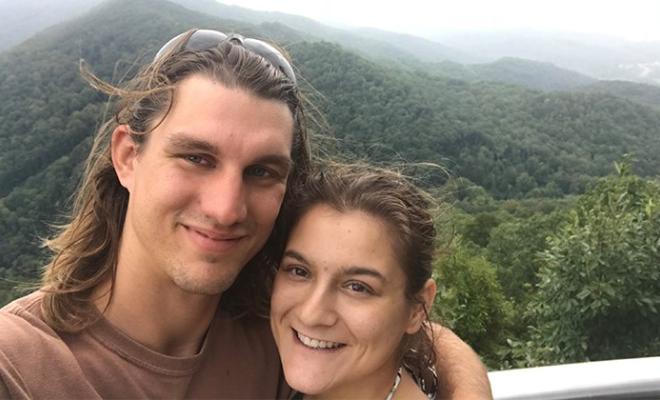Could there be a more apt time to talk about being in a relationship than the time of COVID-19? We are currently isolated from each other -- a familiar experience for many of us with CF -- and are reinventing our relationships across the physical distance.
I have been with my wife for 10 years and married for nearly four, and we are still on the journey of building a successful relationship. It is continuous this way; the building of all our relationships. This post shares my journey toward my marriage and how the path unfolded inside the frame of CF.
I attended Florida State University for my bachelor's degree in dance and then in 1998, at 22, I moved to New York to pursue a dance career. My FEV1 lung function when I entered undergrad was 85 percent; by the time I left, it was 60 percent. Within three years of being in New York City, my FEV1 had dropped to 30 percent, which is where it remained for the next six years until making a deep dive to 10 percent just a month before my bilateral lung transplant.
I have been blessed that post-transplant my lung function has stayed steady in the mid-90s percentile. From the time I began to have adult relationships, I was dealing with an ongoing loss of lung function and increasing anxiety. In retrospect, I feel that this unavoidable preoccupation with my health and the losses that piled up over those years arrested my development a bit in the realm of intimate love.
Because I aspired to be a dancer in New York City, a career in one of the most impoverished fields and in one of the most expensive cities in the world, I worked three part-time jobs and danced with whatever time I had left. My emotional landscape was about survival, and I could not dedicate much attention to growth in love. And so, I was often in unsuccessful, somewhat turbulent, intimate relationships.
Most of what I know about being a good wife I learned from developing tried and true friendships. One of my most moving and vivid memories of experiencing the real possibility of friendship was in Brooklyn in 1999. I was in a car with a few new friends. We had all met in a leadership workshop. I started to feel the urge to cough. You know the cough -- it was rattly and thick and I was desperately trying to take tiny gulps of air and suppress it.
The friend who was driving noticed and pulled the car over. He said to me, “April, just let it out.” I was shocked and embarrassed, but the way he said it was so kind that I just let it rip. I'm not sure I could have held it in much longer. I turned away and then coughed up a lot of mucus, which I quickly stashed in a napkin. No one in the car recoiled in disgust, but instead just waited until I was done. My friend put the car back in drive and off we went. Suppressing my cough, hiding and stifling it, had become “normal” to me. Suddenly, in that car, I felt present, back in the conversation. I also felt loved. What happened in the car that night was a paradigm shift for me.
I have always been ashamed of the more grotesque aspects of CF -- the mucus, the smelly gas and bowels, the struggle to breathe in my sleep, the nebulizer treatments -- yet, in that moment I learned that I deserve good people who can sit beside me during the ugly parts of being a person with CF.
I'd had many partners over a 20-year period (from the time I was 15 until I met my wife). Some tried to teach me that CF was the determining factor in the relationship. In college, my first partner made my illness her burden (You guys know what I mean) and stole my cup (against my will) so she could see what my mucus looked like. Throughout my first relationship in New York City, my girlfriend made me go into another room to do my nebulizer because she couldn't stand the sound of my cough. Another partner spitefully envied my friendships -- she assumed it was “just because I was sick” that people cared deeply for me. I had one partner who spent the first year of our relationship surprising me at my apartment once a month to break up with me because they “couldn't handle my CF.” I can still hear that Brooklyn door buzz. I stayed in these relationships far past their expiration dates, largely because I thought I should feel grateful for someone willing to be with me and my illness. But again, I was slowly building an arsenal of amazing friendships.
It took me a long time to understand that my partner should be someone I really like and would be friends with. Go figure! By the time I met my wife, I also figured out that my partner should share the same values.
Here are the things I have learned are necessary to be in a healthy long-term relationship/marriage as someone with CF and post lung-transplant:
Love and appreciate yourself, as you are.
This is the most important lesson, and it's also the hardest. It seems simple, right? My best friend in high school used to always write me notes and sign them with “Love yourself.” It took me years to understand what that actually meant. And in the time it took me to learn that lesson and to realize it is a never-ending process, I experienced many relationships and various levels of failure at them. Until I really started to know my own worth, not just the “burden” I bring as a person with a chronic illness, I was not truly available to the right people. I believe we can't give others what we have not been able to give -- or at least start to give -- ourselves. This one step took many years of excavating my emotions, my baggage, and my feelings of worthlessness as someone who was sick. It doesn't take everyone this long, and it takes some longer; but if you're in that place, know that it is possible.
Determine what YOU need.
We are each unique and we need specific things. I was someone who focused on what other people needed; I think in part I was trying to overcompensate for being the “sick one” in the relationship. I tolerated things that ultimately made me stop liking the people I dated. We are the ones responsible for our own needs. And some needs between people are incompatible.
Make requests without guilt.
Tough one. Asking for what you need is a step in the process of being a fully alive human being and a fully accountable partner. Having CF and asking for help is another level of tough. Being willing to hear, “No,” is part of being willing to figure out compromise in relationships. And even further, determining your “deal breakers” is instructive in determining if you can meet someone in the middle on something.
Set boundaries for yourself and others.
Even within the best of relationships, people drag in their baggage and bad behaviors a little. It is important that you establish boundaries for your own reactivity and behavior, as well as articulating your own boundaries to others and expecting others to respect them. As someone with CF, I've had to come to terms with some of my own anger -- anger at the disease and other particulars within my life -- and not expect my partner to make extraordinary room for it. Learning how to communicate while in the thick of an intense moment, or making sure to circle back to thoughtful communication later, is a must. Developing resentment toward those we love is a pitfall that can be deeply damaging.
Become an expert at apologizing.
No, not apologizing for being a person with a chronic illness. Nope, never that. Rather, apologize when you have hurt the person you love, intentionally or unintentionally. Be mindful of the long game. There is no short-term score board. Emotions are an experiential thing and both people need to feel heard. Being heard is something many of us with CF may feel is absent. Whether we've experienced not being heard by the health care industry or a nurse while in the hospital, it can feel extremely scary. Sometimes in our relationships we are re-experiencing that trauma, but we have to be able to ground ourselves in the moment and remember that the person in front of us loves us and is also, like us, learning how to listen. They also often come to the table with their own traumas.
Laugh TOGETHER.
This one is worth mentioning because, while it is certainly one of my must-haves, it is something I believe most of us need -- especially those of us with CF who have learned hard lessons about deep, scary mortality stuff long before others. We need to be able to laugh with the one(s) who love(s) us. Because we don't really have a choice about coughing, I feel it's the most lovely way to find yourself in a coughing fit. We cough up the junk and return to being in the moment.
Interested in sharing your story? The CF Community Blog wants to hear from you.







